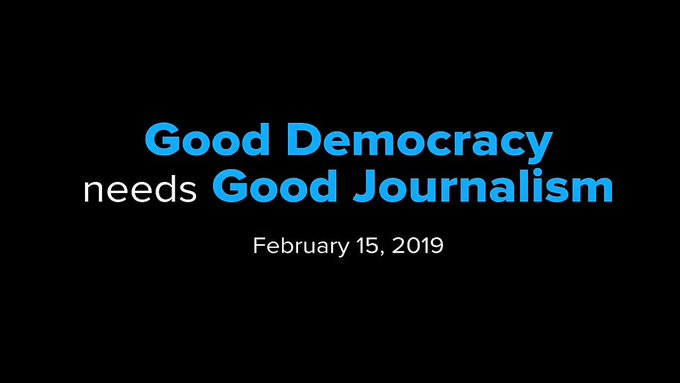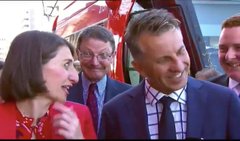Berejiklian Government's record difficult to judge: Departmental annual reports may not be complete;ministers including the AG refuse to correct annual reports
by Ganesh Sahathevan

NSW Premier Gladys Berejiklian has recently attacked
The Attorney General NSW Mark Speakman is responsible for presenting to Parliament the audited annual reports of the Legal Profession Admission Board (LPAB).
Late last year Speakman ,and the LPAB were alerted to omissions from the LPAB's 2017-2018 Annual Report.The omissions concern complaints against the College Of Law Sydney.
The Audit Office NSW was queried about the omission and agreed that the complaints against the College should have been included in the 2017-2018 LPAB Annual Report. The AG and premier were informed of the Audit Office's opinion, but have refused to correct the LPAB annual report.
In December 2018 the state’s Auditor-General released a report, criticising the Newcastle’s light rail network… and saying the benefits may not outweigh the cost.
A question from journalist Michael Parris of the Newcastle Herald to the premier about a business plan for the Newcastle light rail network was not answered; instead the premier accused the journalist and his paper of bias.
The premier's record cannot be judged with any certainty given the refusal of her government to obey basic rules of disclosure.

NSW Premier Gladys Berejiklian has recently attacked
a journalist who questioned her handling of the NSW
Govt's controversial light rail project (see story below).
The Attorney General NSW Mark Speakman is responsible for presenting to Parliament the audited annual reports of the Legal Profession Admission Board (LPAB).
Late last year Speakman ,and the LPAB were alerted to omissions from the LPAB's 2017-2018 Annual Report.The omissions concern complaints against the College Of Law Sydney.
The Audit Office NSW was queried about the omission and agreed that the complaints against the College should have been included in the 2017-2018 LPAB Annual Report. The AG and premier were informed of the Audit Office's opinion, but have refused to correct the LPAB annual report.
The Berjelikian Government seems intent on defending a culture of secrecy. In May last year the NSW Auditor General reported that there were 'gaps in oversight' for $1.2bn spent by NSW non-government schools.
In December 2018 the state’s Auditor-General released a report, criticising the Newcastle’s light rail network… and saying the benefits may not outweigh the cost.
A question from journalist Michael Parris of the Newcastle Herald to the premier about a business plan for the Newcastle light rail network was not answered; instead the premier accused the journalist and his paper of bias.
The premier's record cannot be judged with any certainty given the refusal of her government to obey basic rules of disclosure.
END
Reference
Reference
NSW Premier Gladys Berejiklian slammed over 'Trump-like response' to Newcastle journalist
Posted
A Twitter storm is engulfing Gladys Berejiklian over an exchange with a journalist last week, with a Labor spokeswoman today saying the New South Wales Premier should apologise.
Key points:
- Labor spokeswoman calls on NSW Premier and the Transport Minister to apologise over exchange with reporter
- Video of the incident attracts angry response online, with journalists accusing the Premier of "contempt"
- Media expert claims the politicians' behaviour is "undermining the credibility of the political process"
Video posted to Twitter shows Ms Berejiklian and Transport Minister Andrew Constance characterising Newcastle Herald journalist Michael Parris's line of questioning about a controversial light rail project as "operation normal".
A chorus of criticism has ensued, with some prominent journalists accusing the Premier of treating Mr Parris with "contempt".
Labor Transport spokeswoman Jodi McKay has told the ABC she believes the pair were out of line.
"I think the Premier and the transport minister should apologise to this journalist, I think it was an incredibly disrespectful way that they treated this journalist," she said.
"Journalists ask tough questions — we know that, we're politicians.
"I think you only have to see the reaction of the member of the Upper House standing behind them both [Scot MacDonald] to understand it was a shocking way to treat a journalist, his face kind of says it all.
"This is just not on you can't treat journalists in rural and regional areas or in metropolitan Sydney like this."
'An obligation to be positive'
The Premier and the transport minister Andrew Constance rode the light rail in Newcastle last week ahead of its official opening.
It cost the state government $400 million to replace the old heavy rail line in a decision that was criticised by some within the city.
When Mr Parris asked why the Government had not released a business case for the light rail, Mr Constance asked him which news organisation he worked for.
"Newcastle Herald," Mr Parris replied.
"Yeah, that's normal for them," Ms Berejiklian said.
"I'd just hope you'll have a little bit of a positive outlook on today," Mr Constance said.
"Because it's a wonderful outcome for the city and you know, it's great news for everyone."
"You talk about a positive outcome, but as we rode the trams today the streets were empty — you keep talking about revitalisation, and that's not the message that we're getting from business people," Mr Parris said.
"Have you spoken to the Hunter Business Chamber?" Ms Berejiklian asked.
"I've walked up and down the street and I've spoken to just about every shop keeper," Mr Parris replied.
"Mate, um, let me say just say this to you," Mr Constance said.
"Since we've taken the heavy rail up there's been $3 billion of private sector investment into the city.
"Everyone across the state, even in Bega, is talking about what's happening in Newcastle.
"You've got a city to be proud of and, you know what, I think there's an obligation on the part of the Newcastle Herald to be very positive about this town because it is a wonderful place.
Journalists swarm to reporter's defence
David Threlfo, a camera operator for NBN News, used his personal Twitter account to release the video of what he described as Ms Berejiklian's "Trump-like response" to Mr Parris's questions.
"Inconvenient questions," Mr Threlfo tweeted,
"Watch the Trump-like response from @GladysB and @AndrewConstance as a @NewcastleHerald journalist asks a legitimate question."
Mr Parris has used Twitter to post links to a number of stories published by the Newcastle Herald, including one with the headline 'Long-term benefit of Hunter St trams 'massively uncertain''.
"One of the many times I've spoken to the Hunter Business Chamber on light rail," Mr Parris said.
Fellow journalists, including Peter Fitzsimons, were quick to show their support for Mr Parris.
"Good on the journo for not backing off," Mr Fitzsimons said.
NBN journalist and presenter Jane Goldsmith also weighed in on Mr Threlfo's thread.
"After following the rail line issues for well over a decade, I believe the journalist's questions were completely justified, and for a balanced story they needed to be asked."
NSW political editor for The Australian Andrew Clennell tweeted at the Premier: "Treating journalists with contempt like this is appalling."
But not everyone in the Twittersphere was as sympathetic.
"Is it that big a deal?" asked Andrew Blow on Twitter.
"All I see is a smiling, albeit moderately frustrated premier, giving a throwaway response to a hostile (although reasonable enough) question from a newspaper, which is often more sympathetic to her political opponents."
'Undermining the process'
Honorary Research Associate of the School of Media and Communication at RMIT University, Vincent O'Donnell, told ABC Newcastle the Premier and the Minister appeared to have used the press conference to silence dissent.
"The journos, if they're doing their job correctly, are there on behalf of the community," Mr O'Donnell said.
"The politician is there on behalf of the Government or the Opposition, and they both have an obligation to enter a dialogue that's going to extend the understanding of the issue, not close it down."
Mr O'Donnell described press conferences as "probably the least structured piece of political theatre we have before us."
"The media manager for the pollies tend to try and keep it on track," he said.
"If you're a reporter in a provincial city, then your chance of talking to the Premier and the Minister For Transport face to face is one of those occasions when you've really got to work hard on them, and explore and exploit everything out of it that you can," Mr O'Donnell said.
"We are so used to politicians who prevaricate — even when asked a reasonable question, they prevaricate, they try and change the subject, they focus on one area or in some cases they just simply answer another question, as though the first question didn't happen.
"So many [politicians] don't seem to recognise that when a journalist asks you a question, the journalist is there on behalf of the community, and that's one of the most important aspects of a press conference."










Comments
Post a Comment